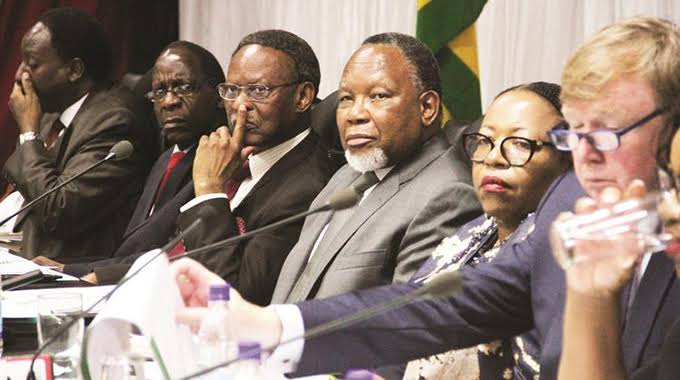The current and ongoing human rights abuses, raping of women, and killings of civilians by Zimbabwe’s security forces, has revealed that President Emmerson Mnangagwa has ignored the recommendations of the Motlanthe Commission.
After initially have had professed ignorance of who deployed the army which used live ammunition on civilians killing six people and injuring 35 others, on 1 August 2018, President Mnangagwa set up a commission of inquiry into the killings.
The commission headed by former South African President Kgalema Motlanthe was mandated to investigate what actually transpired, and come up with key recommendations to be looked into and possibly adopted by the country to move forward, and also so that the same killings would not happen again.
The Commission’s key results areas were to investigate the events leading to the violence, the conduct of the police, the involvement of the army, and to find out if the force used was proportional to the situation at hand.
Part of its findings highlighted that while the violence protests, destruction of property among other things was uncalled for, the state made mistakes in its response, violating provisions of the country’s supreme law, the Constitution.
It noted that in deploying the army to assist the police, grave shortcuts were made as proper procedure were not followed.
The Commission said on the fateful 1 August 2018, the use of live ammunition on unarmed and fleeing civilians was unjustifiable, and so was the use of baton sticks.
According to the findings the state unjustifiably used excessive force, in response to the trouble that was on the ground.
The Motlanthe Commission made various key recommendations that include the compensation of the victims, establishment of code of conduct for political parties, work out on electoral reforms, guarding against hate speech, among others.
On the part of the law enforcement agencies, the commission said when they were to be deployed, it should be done in line with the provisions of the country’s Constitution.
Some of the recommendations are that the police should be skilled on how to deal with like situations, be trained in professionalism and to non-partisan in dealing with politically instigated public disorders.
However, the ongoing state heavy-handedness on citizens perceived to have taken part in the recent protests, has exposed the Mnangagwa administration’s failure to heed the Commission’s valuable recommendations. Analysts say what is currently happening is exactly the opposite of what the doctor had prescribed.
In response to the recent protests that emanated from the fuel hikes, the country’s security forces and law enforcement agents conducted their duties along partisan lines. As if that was not enough, the country’s judiciary has allegedly been roped in to make sure that perceived opposition members once suspected to have had participated in the protests are persecuted than prosecuted. Most of them are being denied bail, so as to frustrate them and discourage others from carrying out peaceful demonstrations in the future, critics say.
This recently saw lawyers in the country taking it to the streets demonstrating against what they called judicial capture by the state. The lawyers claimed that there is no rule of law in the country.
Meanwhile, according to a constitutional watchdog, Veritas Zimbabwe, had the Commission’s recommendations been implemented the current human rights abuses, beatings and killings of civilians, as well as the raping of women by state security agents could not have taken place. The watchdog says though the commission had its own weaknesses, the recommendations it provided were sound and could have helped in preventing the current state sponsored beatings and killings of civilians.
Peter Nyoni writes from South Africa













